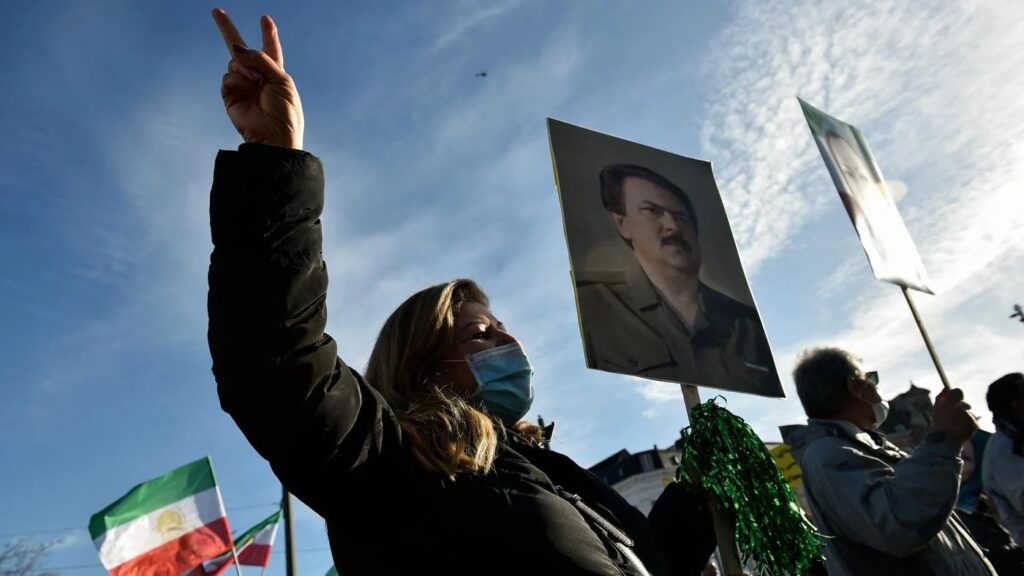The Islamic Republic of Iran is widely recognized as the world’s number one terrorist state. Four years ago, I encountered Iranian terror firsthand and close when it ordered an attack upon a grand gathering as Iranian dissidents and their international supporters had assembled in the heart of Europe, at a convention space in the suburb of Paris.
Thankfully, the terrorist plot was thwarted before it could disrupt the Free Iran World Summit or kill its prime target, the Iranian Resistance leader Maryam Rajavi. Had it not been, a powerful explosive device would have been detonated near the stage at that event, potentially killing hundreds of attendees including any number of the European and American dignitaries (including myself) who spoke in support of the National Council of Resistance of Iran (NCRI) and its plan for Iran’s transition to secular democracy.
The mere threat of such an attack is enough to identify the clerical regime as a disgraceful plague that the entire international community should feel the duty to strongly oppose and isolate.
After three Iranian operatives were arrested while attempting to infiltrate the NCRI-organized summit in June 2018, German authorities also carried out the arrest of a high-ranking Iranian diplomat who had directed those operatives’ actions.
Assadollah Assadi was the third counselor at the Iranian embassy in Vienna at the time but was detained before he could return there and claim diplomatic immunity. He was later extradited to Belgium to face charges for plotting to commit terrorism and mass murder and was sentenced to 20 years in prison.
His co-conspirators were sentenced to terms of up to 18 years. Assadi declined to pursue an appeal, effectively acknowledging his guilt while also signaling reliance upon his handlers in Tehran to push for his release.
I, like countless other supporters of the Iranian Resistance, hailed the Antwerp court’s decisions when they were handed down. We viewed them as clearly communicating the Islamic Republic’s identity as a terrorist state. Yet, many of us criticized the overall response to the 2018 terror plot, because it lacked any commitment to accountability for higher authorities within the Iranian regime.
This was a willful dereliction of duty since Assadi’s trial confirmed that he had been acting as an instrument of the regime’s highest officials.
The details of that plot should have led to the issuance of arrest warrants for the likes of Supreme Leader Ali Khamenei and other officials who were involved in decision-making on the Supreme National Security Council at the time.
But now there is a serious risk that the victory of justice against the terrorist state may be reversed and that terrorism may win a greater victory over international justice and international security.
On June 30, it was revealed that Belgian authorities had quietly negotiated a treaty with the Islamic Republic which was clearly intended to set the stage for Assadi’s release by allowing persons arrested in either country to serve out their sentences in their home country, or to be set free by that country’s judiciary.
Numerous European and American dignitaries, leading human rights activists, and much of the international community as a whole were appalled by the content of that treaty, and doubly appalled when the Belgian parliament approved it on 20 July.
To its credit, the legislature’s opposition party has loudly and firmly protested that treaty. Objections to its implementation have since been heard by the judiciary, with the NCRI and its international backers including myself making a legal case against the decision and the Brussels court of appeals ruled that the government cannot release Assadi in any prisoner swap agreement until a legal review has been completed.
It was evident that the agreement only sets the stage for more Westerns to be taken hostage by the Iranian regime and it would seriously disrupt European security and compromise states’ capabilities to prevent and fight international terrorists. Iran's terrorist organizations, such as the Ministry of Intelligence and Security, would come to view Belgium and other EU countries as safe havens for them to continue building their international criminal networks.
The treaty would signal to rogue states and terrorist organizations throughout the world that their foreign operatives have little to fear from capture. In that case, those operatives could feel confident that their overseers are capable of rescuing them simply by kidnapping citizens of the state where their trial took place.
And guess what?
On July 30, Iran announced it had arrested a Swedish citizen. And this was after a court in Stockholm sentenced a former Iranian official for being personally involved in the massacre of political prisoners in Iran in 1988.
Iranian regime’s hostage-taking and blackmailing has become a serious impediment to international justice. As citizens of the European Union, which is ostensibly the global stronghold of freedom, democracy, and human rights, we cannot ignore the treaty’s origins or its potential impact.
We cannot ignore the fact that appeasement has increased the suffering of the Iranian people in the past, much less that it will continue to do so if practiced by Belgium or any other state that has been the target of Iranian terrorist activity and hostage-taking.
No one deserves to be the victim of those activities, and no Iranian operative deserves to be rewarded for them. Those who have already been victimized deserve better than to witness a return to appeasement. So do their families, the millions of Iranians that strenuously oppose and resist the regime’s violence.
For their sake as well as for the sake of international justice and Western security, Belgium and every other EU member state must be vigorously dissuaded from appeasement, which has always been a morally wrong and practically dangerous approach to dealing with the Islamic Republic of Iran.


